Part of what can make potential guinea pig parents hesitant to adopt and take care of them can be something as simple as the misconception that guinea pigs smell. However, just like many animals, it’s not the guinea pigs themselves that smell, it's a combination of a variety of factors that may end up with a less than flowery-scented guinea pig cage.
Do guinea pigs smell?
This is one of the questions that new and potential piggy parents usually have, and the answer is no! They don’t smell bad, at least. Guinea pigs groom themselves, and are relatively clean animals overall. Guinea pigs secrete a fluid from their eyes that they use to clean their faces.
In terms of bathing guinea pigs, that doesn’t need to be done often because they’re self-groomers. The only times where an actual bath with water and gentle soap is necessary is if the guinea pig has urine and poop embedded in their fur.
This is something that happens mostly to guinea pigs with long hair, but generally, guinea pigs do not to be bathed. We have a blog post that details the best and most basic grooming and cleaning routine for guinea pigs, which you can read to learn about keeping your guinea pigs clean.
Generally, everyone has their own natural scent, whether it’s a human or guinea pig. If you’re noticing a distinct or unpleasant odor coming from your guinea pig’s cage, then there are a few things that might be causing it.
Is your guinea pig bedding working?
Effective bedding can be defined in many ways, but the most basic element of effective guinea pig bedding is whether it’s fully absorbing your guinea pigs’ urine. There’s nothing more icky than puddles of pee, except maybe your guinea pigs running through those puddles!
It’s important that their bedding is fully soaking up all the urine, and if you’re using paper shreds or wood shavings, it’s important that you clean out the dirty bedding as often as possible. Even if you’re using something like fleece or towels, it’s important to clean those as often as possible as well, since they would absorb urine, but wouldn't dry quickly. This is to stop your guinea pig’s fur from turning yellow and matting, and to prevent bacteria from lingering and new bacteria from growing.
Guinea pigs are very susceptible to infections, whether it be upper respiratory infections, fungal infections, or urinary tract infections. The best way to prevent those, and prevent exacerbating them if your guinea pig already has these infections, is to make sure their cage and overall living environment is as clean and as safe as it can be in the first place.
Guinea pigs with long hair are especially susceptible to something called fly strike, which is where flies will lay their eggs in your guinea pigs' fur and the baby flies will hatch and feed on and eat through the piggies’ skin. These wounds can get infected and become fatal quickly, especially if their cage is already dirty.
There are a few ways that you can upgrade your bedding! We have a blog post detailing the best kinds of bedding for guinea pigs, which you can read fully here. We’ve done thorough research on this topic, as ineffective bedding is something that has affected us personally with our own guinea pigs—It’s the reason we started this company in the first place.
Generally speaking, paper shreds are not good to use as bedding for several reasons. If you’re looking for a bedding option to reduce urine odor, this one is definitely not going to do the job. Paper shreds aren’t good at absorbing guinea pig pee, and the shreds don’t dry either, resulting in soggy bedding that is a pain to clean out and replace. If you’re using newspaper shreds specifically, this can be harmful because the ink could be unsafe for your piggies.
When it comes to wood shavings, this kind of bedding is not only not effective when it comes to absorbency, but it’s dangerous for your guinea pigs as well. Wood shavings are also high in dust content, which is bad for guinea pig respiratory tracts. This is an irritant that can clog up their airways and cause them to cough and put them at risk for infection.
In particular, cedar and pine shavings contain toxins that can destroy the cells that line your guinea pigs’ lungs and trachea. This is especially concerning because not only are the more likely to contract respiratory infections, it’ll be more difficult for their bodies to recover and regrow the destroyed cells.
The best option for bedding is to use something like fleece that you can launder and wash for reuse. The only problem that comes with using something like plain fleece is that just buying swaths of fleece from a fabric store isn’t going to be effective. The fibers of generic fleece aren't made specifically for use as bedding for animals.
On the other hand, GuineaDad Liners and GuineaDad Premium Liners are guinea pig fleece bedding made specifically for the job! Our guinea pig bedding is not only ultra-absorbent, but it dries quickly, which makes washing an easier and faster task. The fast-drying fleece is made with fibers that are coated in antibacterial agents, which inhibit bacterial growth and in turn prevents odor. Both liners are stitched in a diamond-quilted pattern, which helps with spot cleaning with vacuums—the fabric won’t get sucked up!
The Premium Liner is an improved version of the original, with an addition of our AirCell™ technology, which is a pocket of air within the liner that speeds up the drying process whether it’s being used by your guinea pig, or it’s being washed and dried.
The stink could be coming from your guinea pig hay!
Hay has a pretty distinct smell, especially if kept loose and out in the open. This is where giving your guinea pigs hay in large piles throughout their cage might be the best idea. Aside from the hay odor, piles of hay tend to have more dust as well, which is harmful for your guinea pigs’ lungs.
Even more dust can be formed if your guinea pigs are running through their hay piles! Spot cleaning their cage and vacuuming up the dust can be quite the task, and traditional hay racks can still harbor some dust as well.
GuineaDad Hay Box and GuineaDad Hay Bar are two of our hay feeding options with different styles of packaging, but both have the same goals—making guinea pig hay feeding easier and hands-free, reduce dust and mess, as well as waste. Both versions of the packaging make feeding your guinea pigs easy because you never have to worry about refilling, and those who are allergic to their guinea pig hay never have to directly touch it.
Our hay is micro-filtered for dust and other impurities, which means the Hay Box and Hay Bar are pure, 100% hay. This makes feasting on hay so much safer for your guinea pigs, and you won’t have to worry about the dust irritating their airways. The packages being densely packed also help with odor, so that unpleasant smell that you dislike will be non-existent!
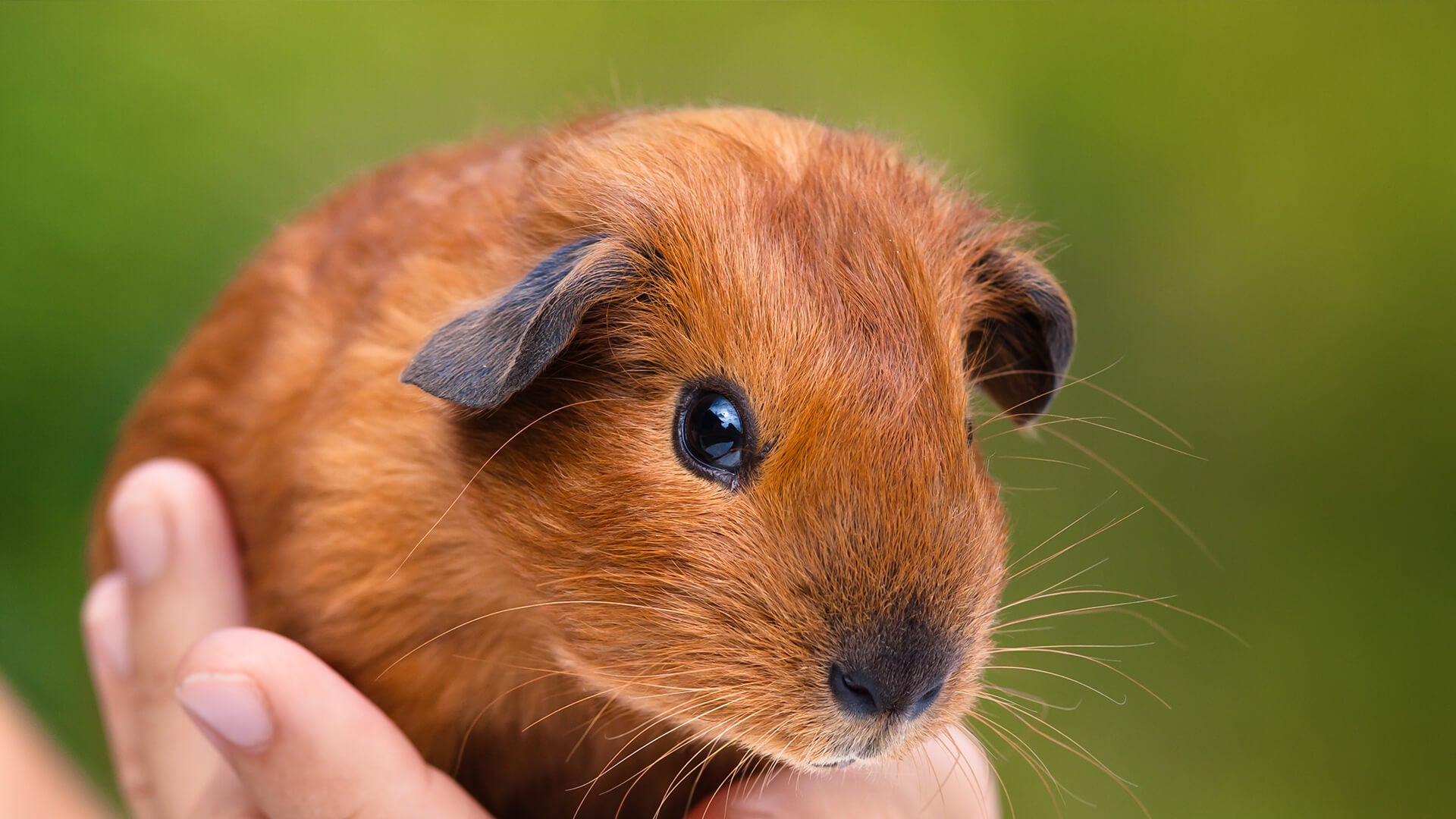
The bottom line: Guinea pigs don’t smell!
The only thing that stinks is ineffective guinea pig bedding not working as it should, and their hay being loose and scattered! It’s important that you keep your guinea pigs’ living space as clean and sanitary as possible, while also taking care to remove dust and other foreign particles from their cage. A safe living environment directly translates to a happier and healthier guinea pig that lives for longer!


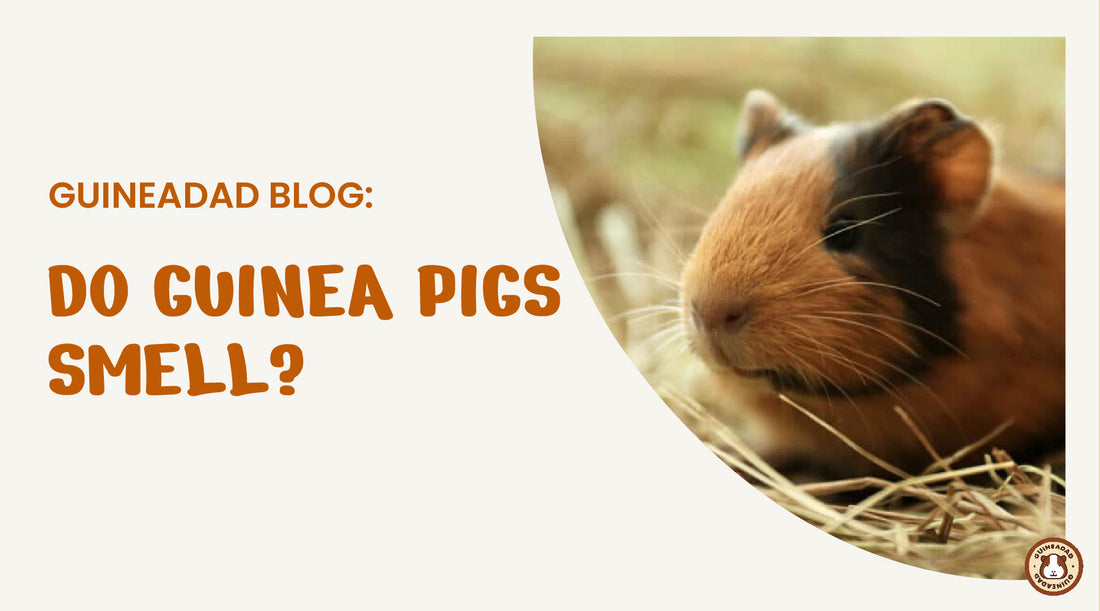



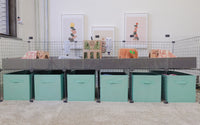

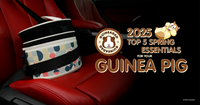
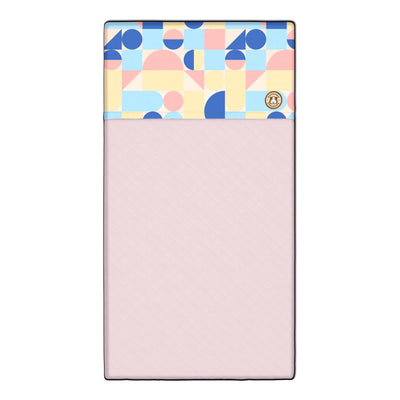
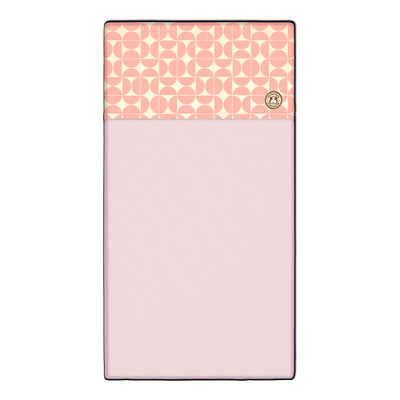
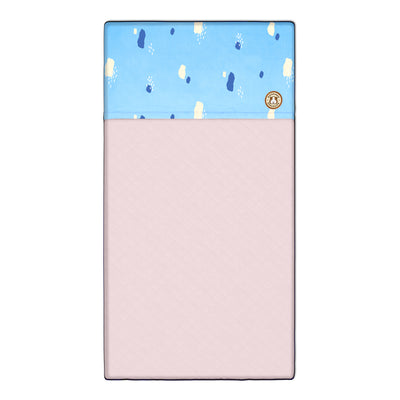
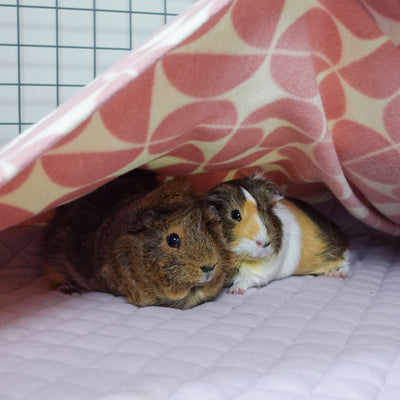
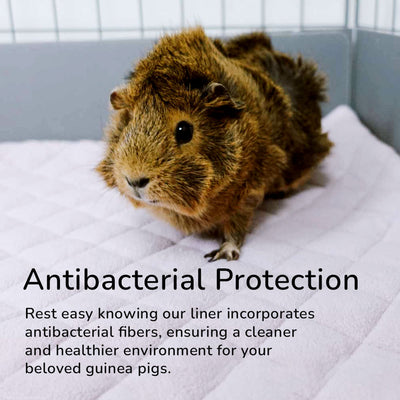
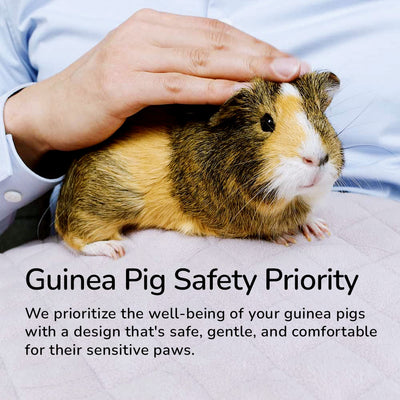
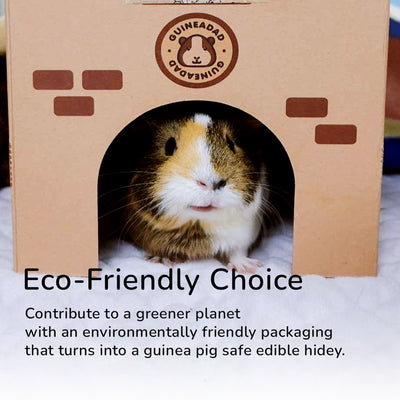


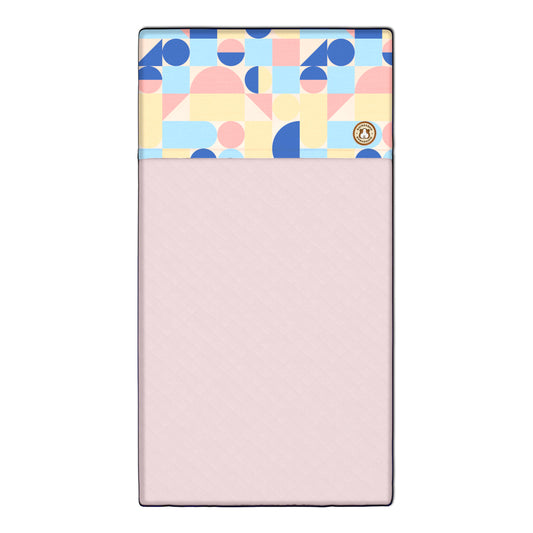



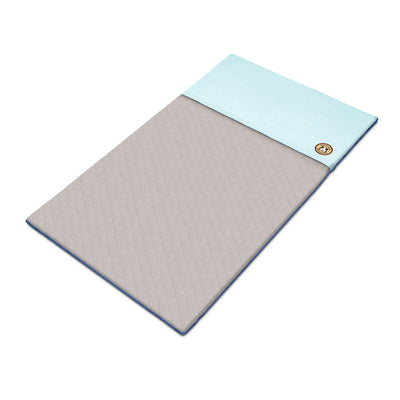
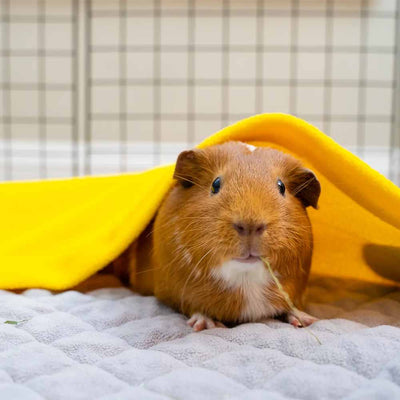
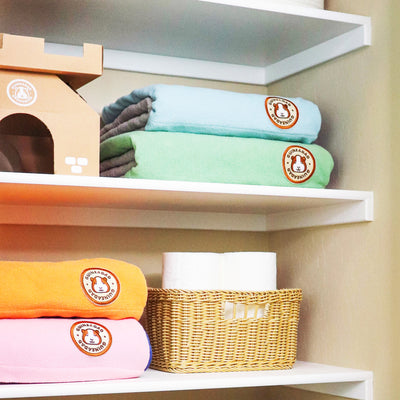
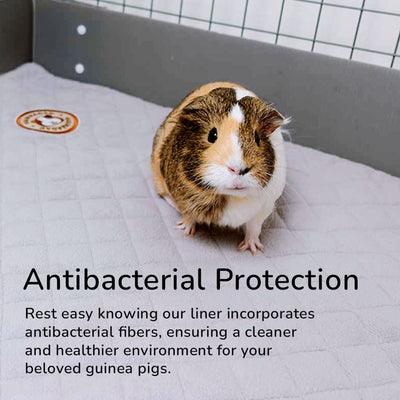
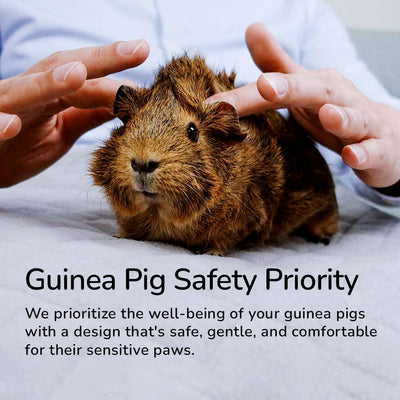
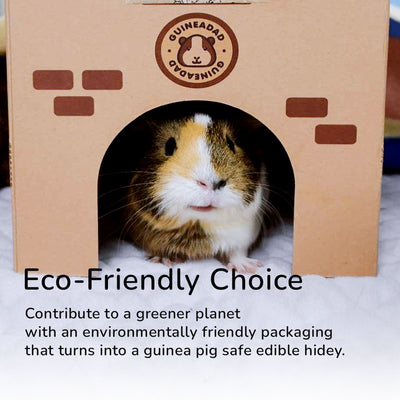
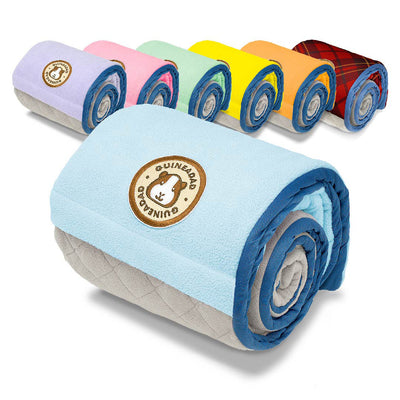


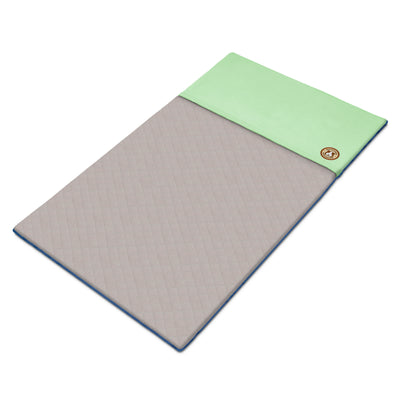
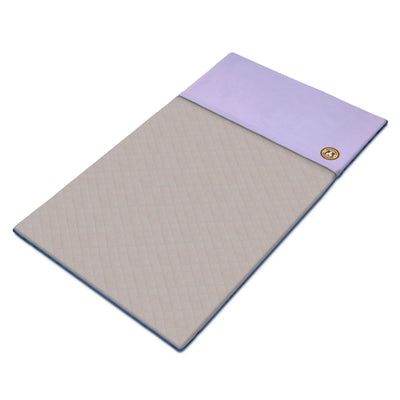
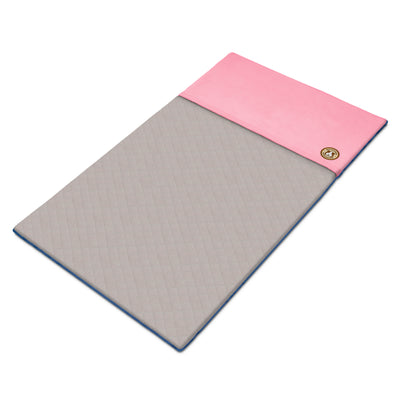
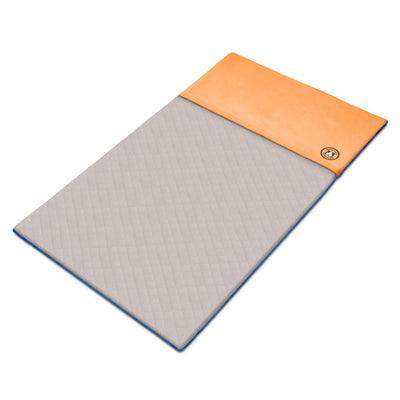
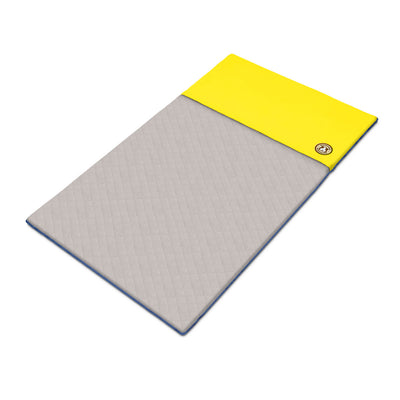
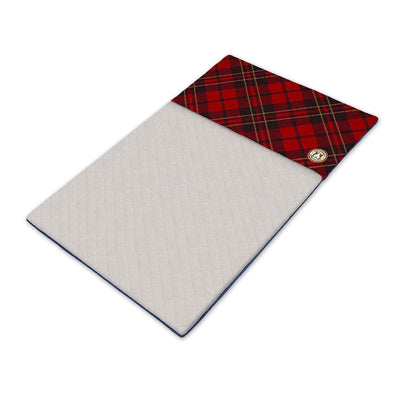
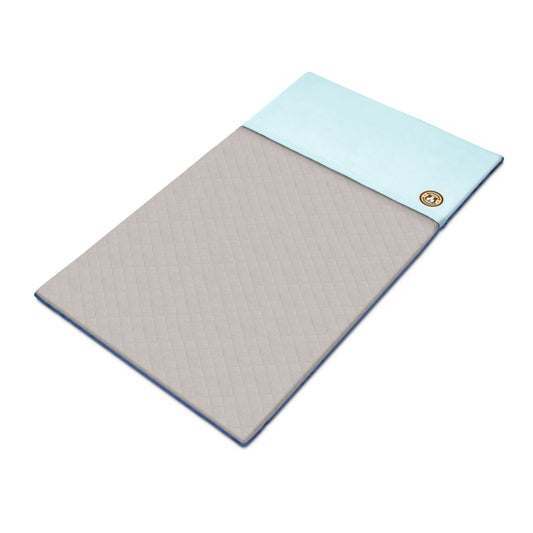







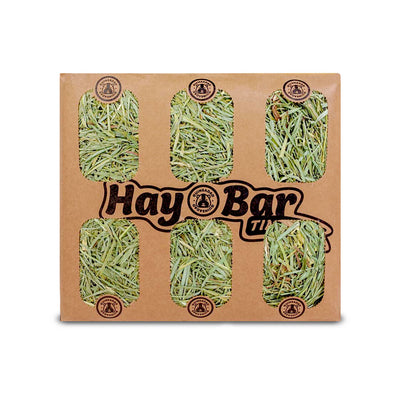
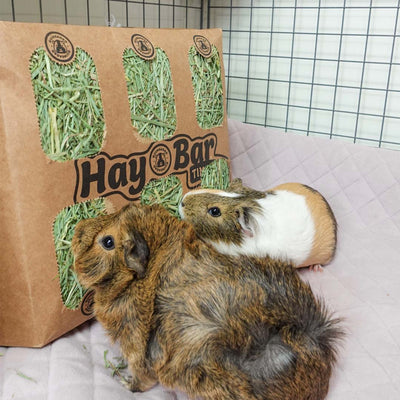
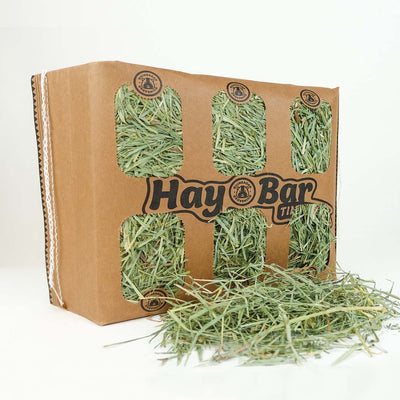
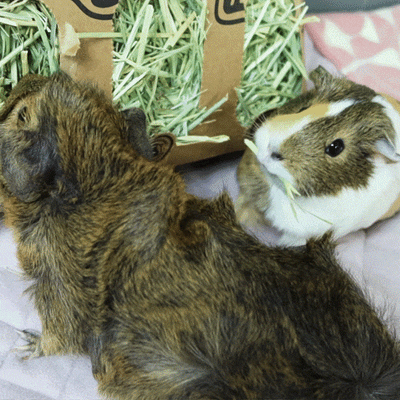
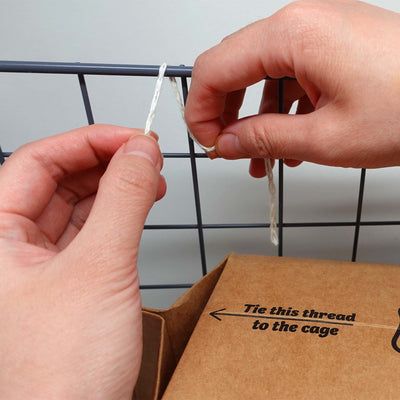
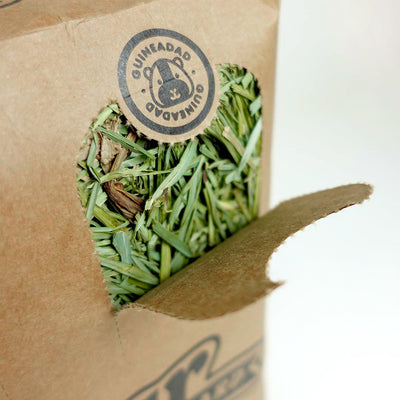
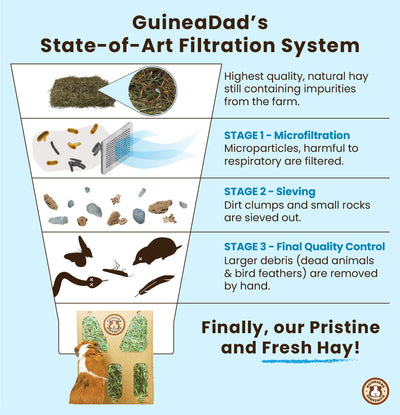
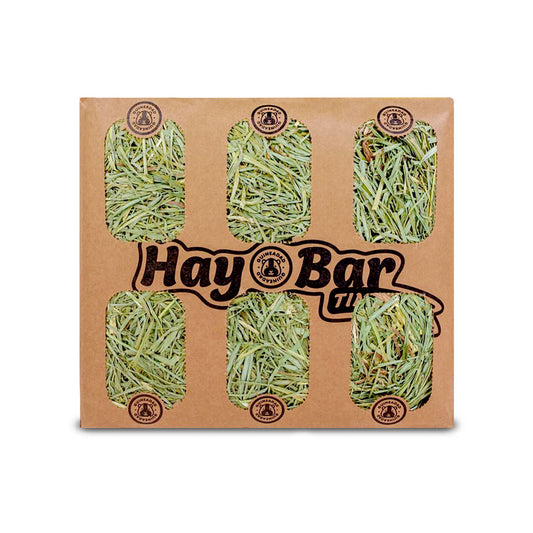
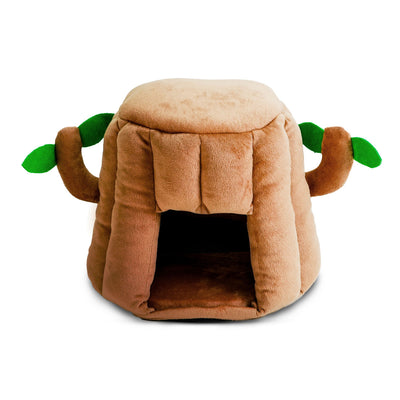
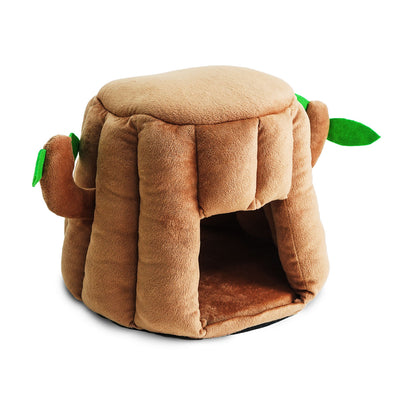
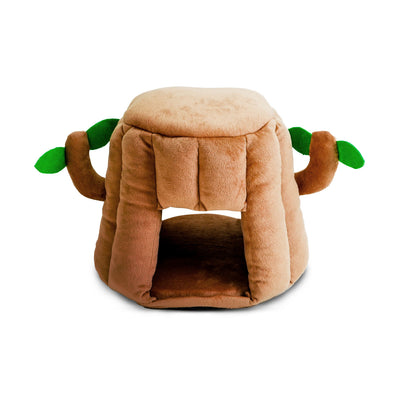
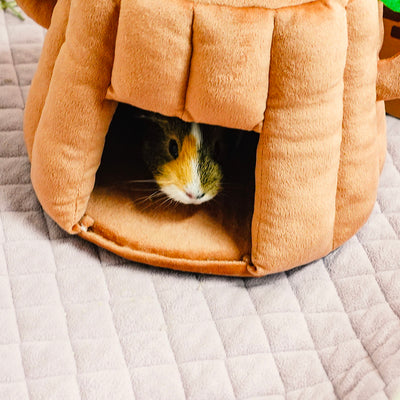
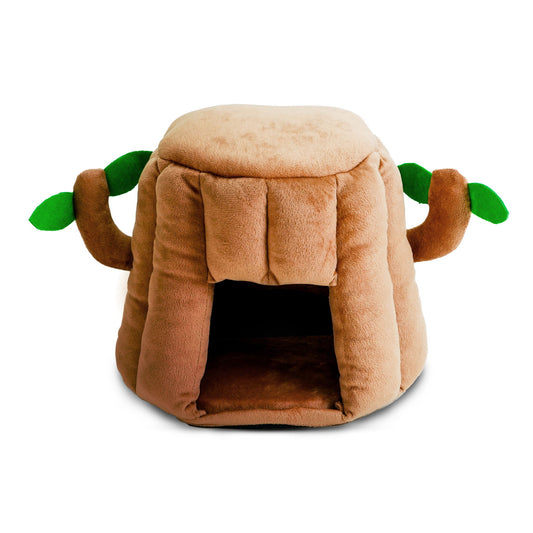
1 comment
Thanx 4 info re: smell. Good to know. Also do they shed? If so, like rabbits or cats. I’m very allergic 2 both. I did have a furry hamster( my daughter did) at one time no problem with her. She lived for 2 plus yrs.